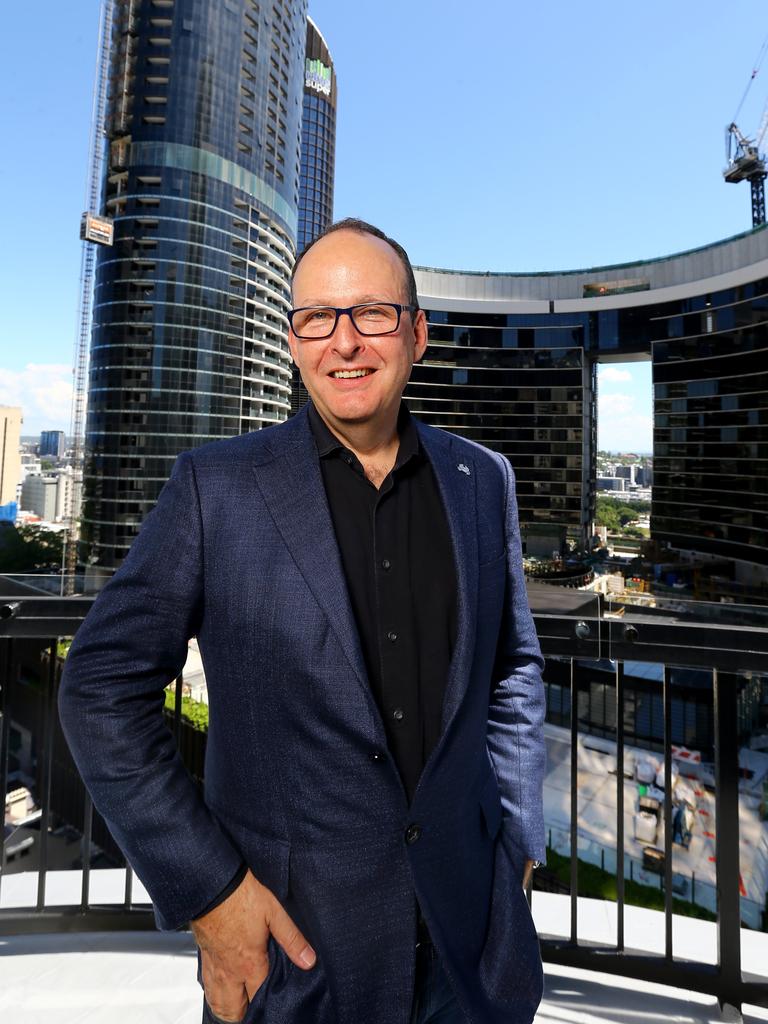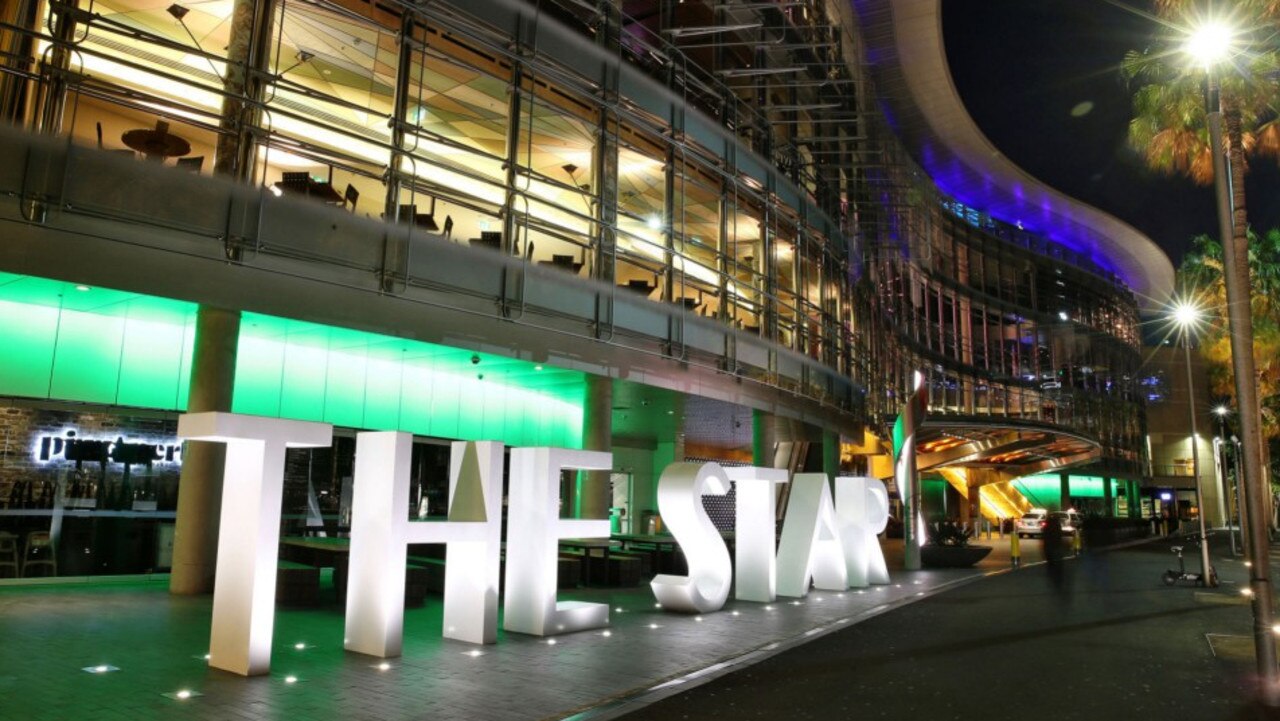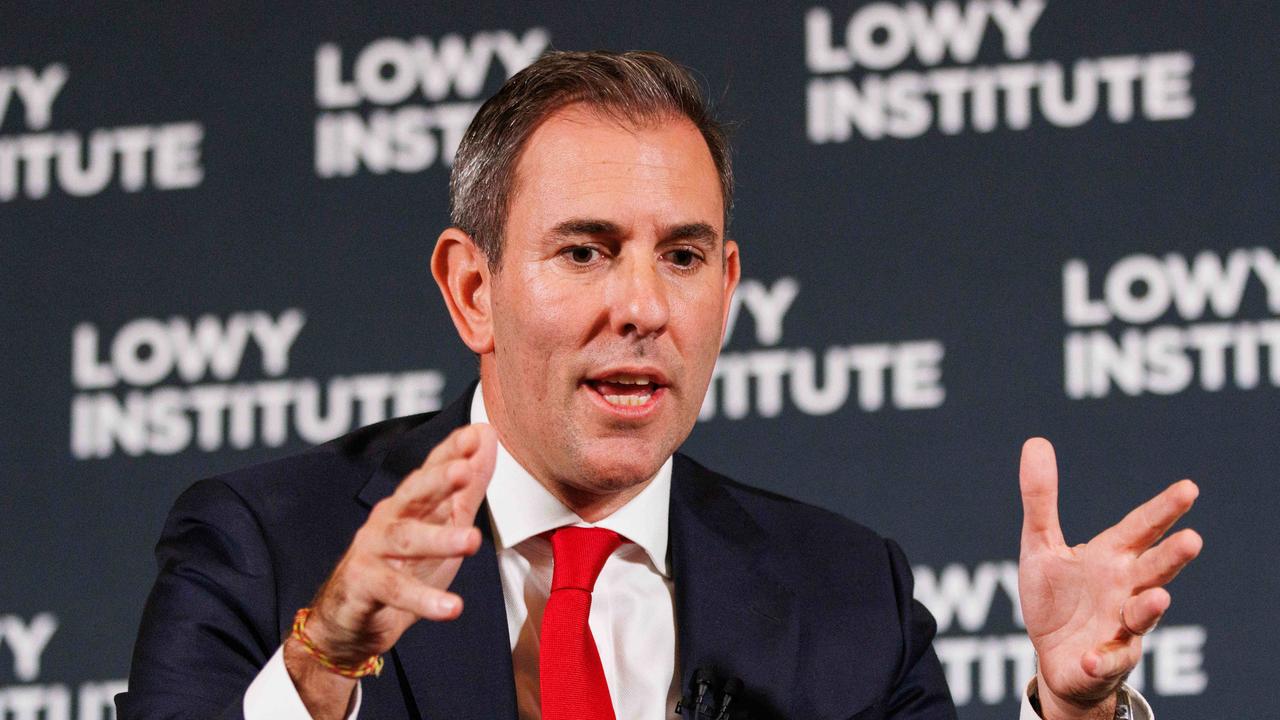The questions Star’s high-priced inquiry won’t ask
It is becoming clear that responsibility for the casino’s reform efforts in Sydney were falling through the regulatory cracks.

Three weeks into NSW’s multimillion-dollar probe into the cultural crash of Star Entertainment, the inquiry has so far avoided asking the obvious question.
While a string of experts and witnesses have given evidence that the relationship had broken down between former chief executive Robbie Cooke and the NSW casino regulator, no one has asked why?
The opportunity was again passed over on Wednesday when Elizabeth Arzadon, a consultant with Kiel Advisory recruited by Star to provide an update on its corporate culture, had observed the relationship between Cooke and NSW Independent Casino Commission had hit an impasse.

She pointed out that the differences of opinion that had arisen between the regulator and Cooke was that some of Cooke’s team should be removed. Cooke disagreed with that claim, she said, “and that seemed to be an immovable difference of opinion”. This statement went through to the keeper.
Indeed the inquiry has previously heard in December that NICC chief commissioner Philip Crawford privately told the Star’s board he had lost confidence in Cooke. Why exactly was the regulator pushing for others to go as well? We won’t know.
Arzadon says Cooke was “open about his belief that there was bias from the regulator that would be difficult to overcome”.
If true, it was a serious error for Cooke to be openly discussing his view of the regulator. However in a probe that has been pursuing all lines of inquiry about Star’s management, shouldn’t it also ask if bias existed? But this question is out of bounds.
Inquiry head Adam Bell, SC, who is set to be paid more than $500,000 for his 15-week appointment, should tackle these questions in some form and get to the bottom of why Star was a slow starter in getting its cultural reform under way.
Bell made the unhelpful contribution when he called out the slow pace of change between Star in Sydney, and Crown in Melbourne that operates under an entirely different jurisdiction.
“Why the stark contrast between Crown which regained its Melbourne casino licence in two years and Star?” Bell mused as a statement rather than a question. But this was a superficial broadside from the inquiry head.
Last week Cooke told the inquiry he dealt with the regulator in a “respectful way”. He also disputed claims the pace of cultural change was moving too slowly. Cooke resigned from Star in March.
Regulatory gaps
What is becoming clear is that ultimate responsibility for Star’s reform efforts in Sydney were falling through the regulatory cracks.
Any cursory look showed the differences in powers between NSW’s “light touch” special manager and the powerful legislative backing that Stephen O’Bryan, KC, had as special manager for Crown Melbourne.
O’Bryan’s appointment to Crown was for a set period of two years, and from day one he had the extensive powers of a corporate administrator – an unusual situation given Crown was financially solvent.
His appointment was defined as having all the powers, rights, and privileges of a director of Crown, other than the right to vote. This put O’Bryan inside Crown’s board meetings. O’Bryan’s team of up to 30 was deeply involved in the reform process along with Crown’s management and it is understood from those involved in the process that the dialogue went two ways. In March the Victorian gambling watchdog awarded Crown its Melbourne licence back, declaring a very different business had emerged.
In NSW, special manager Nick Weeks was appointed to Star initially for 90 days, although the terms of his appointment were vague about who had responsibility between the manager and Star. This was a source of ongoing tension between the CEO and Weeks.

While Weeks held a synthetic licence of Star, as special manager he had no power or control over the Star business.
Weeks’ appointment was ad hoc, and at the will of the regulator. It was extended in total four times and the current term ends in September. Weeks, a former NRL integrity officer, has a team of six and he has the dual role of overseeing Star’s Queensland operations.
In Victoria, O’Bryan’s regular reports were made public. In NSW they were not.
With the extreme management and board turnover in recent months the narrow way forward for Star has become even narrower. As well as real doubt over the future of the Sydney licence there are plenty of outstanding issues to come for the entire business, including a looming Austrac penalty, Queens Wharf Brisbane debt refinancing as well as another recruitment round for new management.
Brokerage Macquarie Capital Equity tips the Austrac fine could be as much as $350m – a substantial hit – and that comes as Star’s profitability has been hit with the sector under pressure and the business in a strategic funk.
Macquarie downgraded its call on Star to neutral and has a 12-month target of 50c. Rival Crown last week succumbed to the financial pressure and vowed to cut as many 1000 roles across the business.
In giving evidence, Arzadon, who had only been at Star for two weeks before Cooke resigned, believed Star was only six months into a journey that needed three to five years to embed serious and fundamental reform.
And while a lot of activity has occurred, the impact of that activity in terms of embedded change has been minimal, she told the inquiry.
Bell’s musings over the contrast between Star and Crown on their different reform path is a worthy line of examination – even more so in an inquiry where the final cost is set to run into the millions.
Unfortunately, it looks like NSW taxpayers, who are footing the bill, will only get one side of the picture.
Test for investment rules
A month out from the visit to Australia by China’s Premier, Li Qiang – the nation’s second highest official – the federal Treasurer has sought to extend the watch list of the areas Canberra now considers are too politically sensitive when it comes to foreign investment.
The signal sent by Canberra essentially flags to potential foreign buyers in areas such as critical minerals, quantum computing; industries such as healthcare; that house sensitive data; as well as investments near defence sites, that they will come under closer scrutiny.
Australia had previously mapped out critical infrastructure from telcos, energy and ports for a red flag for foreign investment.
Essentially, although China is the fourth – but shrinking – source of foreign capital, the message is: Don’t try to buy it and we won’t have to be forced into making a decision to publicly knock you back.
Foreign investment rules have also been used to knock back deals from the US (ADM-GrainCorp in 2013) and from Europe (Shell-Woodside in 2001).
Currently, controversial bids are often found to end up sitting in the Foreign Investment Review Board for an extended period until the buyer gets the message it needs to withdraw.
This means the new framework seeks to institutionalise something that has been in train for some time.

In a speech to the Lowy Institute on Wednesday, the Treasurer acknowledged Australia’s national security and economic security were being more tightly aligned.
Much of the motivation is about holding on to the resources which will be in demand as the world tries to rebuild itself around a net zero emissions economy.
Chalmers says the changes have been made in response to “an international system under continuous pressure, demographic change, greater risk of major shocks to supply chains, and a restructuring of global trade from the net zero transformation”.
He too believes Australia can be a beneficiary of a “changing and churning” global economy. But only if Australia invests and engages and doesn’t “just protect or retreat”.
With a big focus on security, Chalmers says “investors who we already know … are making investments that don’t raise any sensitivities”. Trade players believe this will put members of the so-called Five Eyes security network on the fast track for approval.
The big test of the rules will come about with cash-starved lithium miners or now even nickel producers. Ironically it was the flow of Chinese capital that built Indonesia’s nickel industry to the extent it has that undermined mining out of Australia.
With the Treasurer putting a big emphasis on net zero as part of the changes, the new investment framework also raises an interesting dilemma for energy companies with significant investment in the nation’s grid and other areas coming out of Hong Kong.
Both Hong Kong-owned Alinta Energy and Energy Australia are making significant investments in green energy here and it is not yet known if the new framework puts barriers around them pursuing further acquisitions.
johnstone@theaustralian.com.au
Originally published as The questions Star’s high-priced inquiry won’t ask



